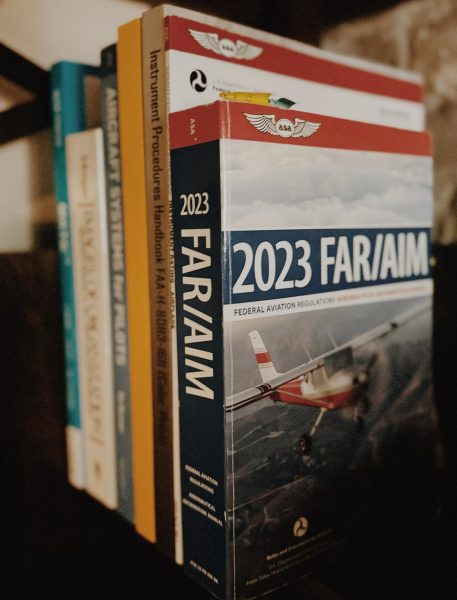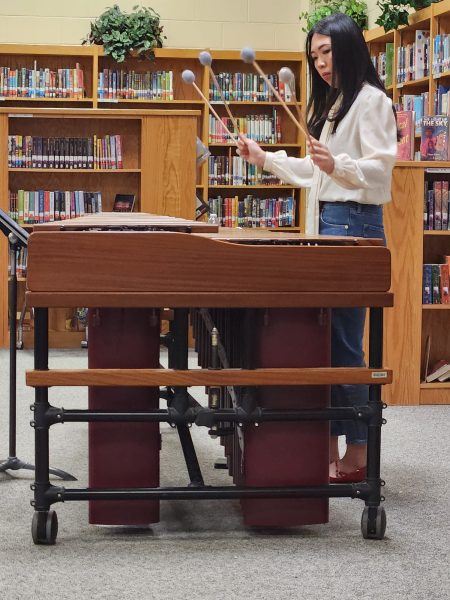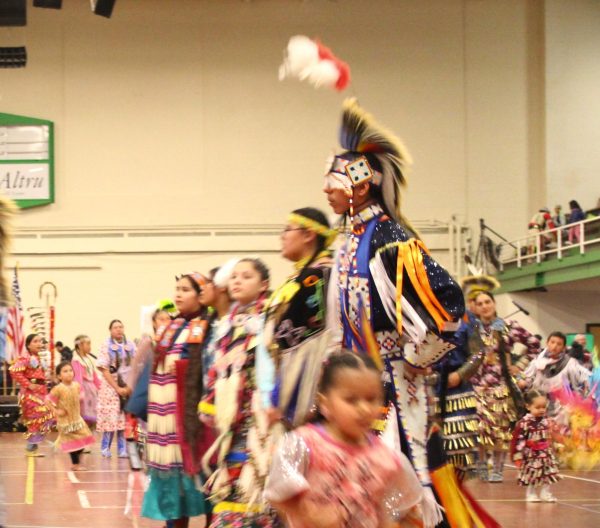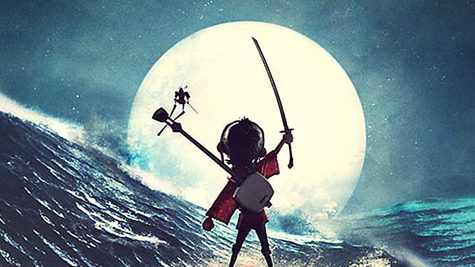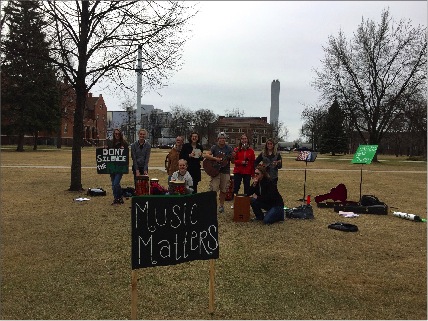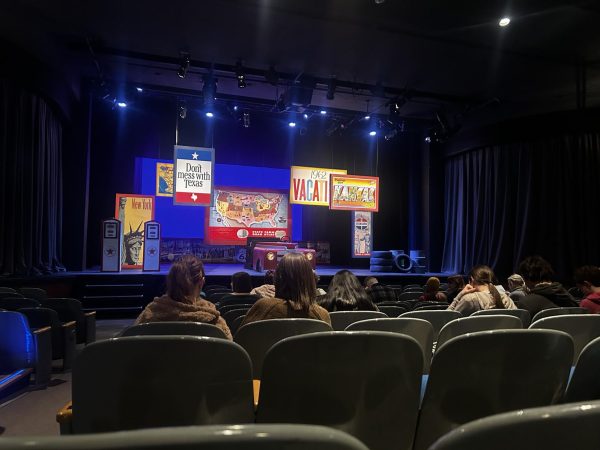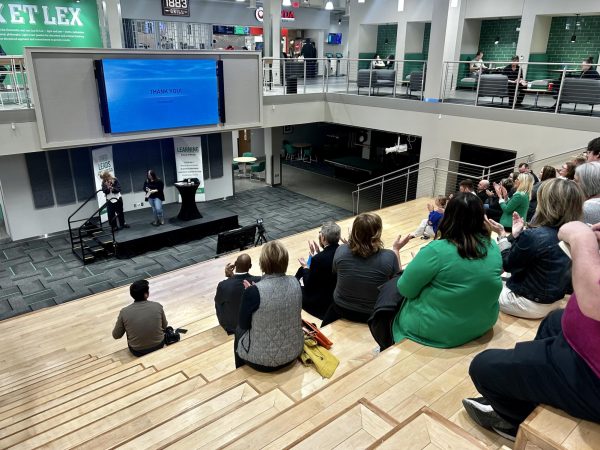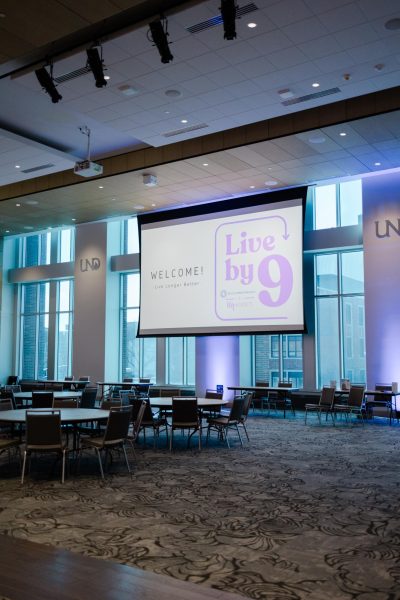They’re not your mascot
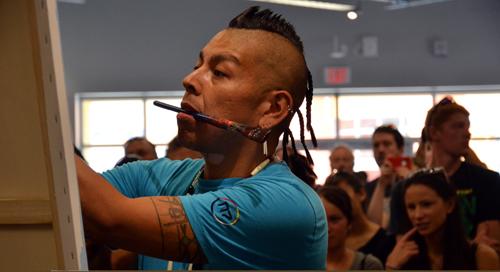
Bunky Echo-Hawk tells the state of Native America through art. Painting courtesy of bunkyechohawk.com
In an indoor open space, a live exhibition is taking place. Bunky Echo-Hawk is performing a modernized form of art. He calls it “live painting.”
Standing in front of a blank canvas and rows of seated audiences, he engages with them in a profound and intimate dialogue. They discuss struggles and issues of their marginalized culture. As they converse, Echo-Hawk’s brush strokes the canvas with bold, raw and honest emotions.
In this live performance of art, the audience speaks, expresses and vents through an artist who completely opens himself up to their everyday battles. The end result is political and the final painting is, in every way live, vibrant and beating.
Described as a modern warrior, Echo-Hawk in many ways fights the cultural and historical appropriation of Native Americans. In his blog post titled “Not Your Mascot,” Echo-Hawk presents a powerful piece of his own work — a painting of an angry Native American. Almost a ghost for feeling forgotten, he emerges in front of a solid red and blue background. Having painted mascots on both his hands, he is giving the middle-finger to every sport fanatic.
The charged gesture is meant to draw the attention of every willfully blind and sport-obsessed person who pays no concern to the dehumanizing and demeaning way in which Native Americans have been used as mascots.
Native American heritage in sports is being manipulated in the name of honor. Echo-Hawk writes, “When people say, ‘It’s just a name’ or ‘it’s not that big of a deal,’ I find myself replying with, ‘Then it shouldn’t be hard to change the name,’”
Echo-Hawk said.
“The judgment in that particular rebuttal is disturbing. It diminishes the voice and concerns of our people.”
The lack of education on behalf of people who see no problem using Native Americans as mascots is indeed alarming. Echo-Hawk tries to tackle their ignorance in a rather sharp and controversial manner. With the intention to provoke and shake people, he defies blind fanatics with powerful straightforwardness especially in the world of sports — a world that nourishes racism, extremism and prejudice.
Echo-Hawk brings attention to the moral and social issues of mascots when he writes, “Perhaps to them, it is just a name, and they can’t see the larger picture, how this mascot issue is tied into a much larger web of social injustice and racism that we are up against.”
If the intention was to honor natives, then clearly Echo-Hawk would argue it’s doing the exact opposite. If the intention was to use natives as ways of celebrating them, then the end result is clearly only reinforcing a long established oppression of native Americans.
These seemingly normative and socially acceptable mores in sports can only be moved by fearless artists like Echo-Hawk. If one is to truly honor the Native American heritage, then one should start by educating oneself.
So before you buy a mascot T-shirt or decide to go to a hockey game with friends and family, before you drink your beer and cheer “Sioux,” think about the cultural and historical weight of Native Americans that you’re carrying. They are not your mascot, and you can honor them in more respectful ways.
Ekram Kofiah is a staff writer for The Dakota Student. She can be reached at [email protected]



